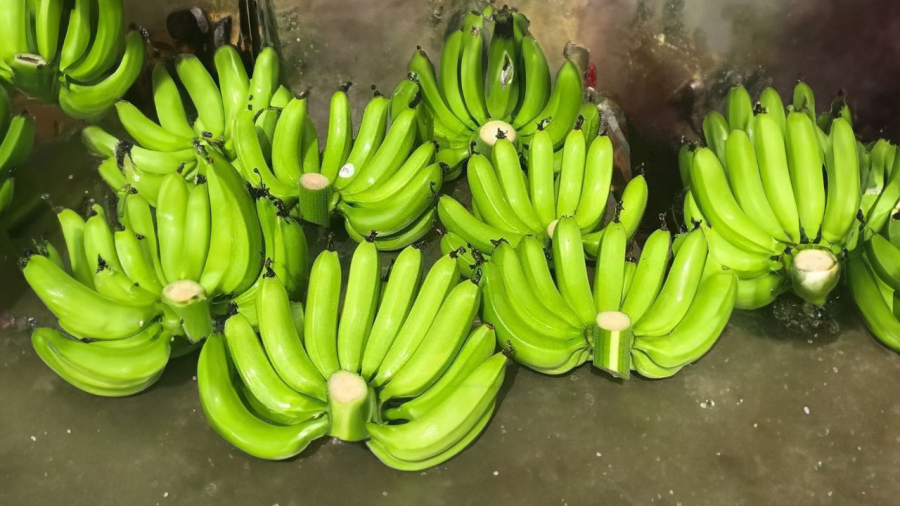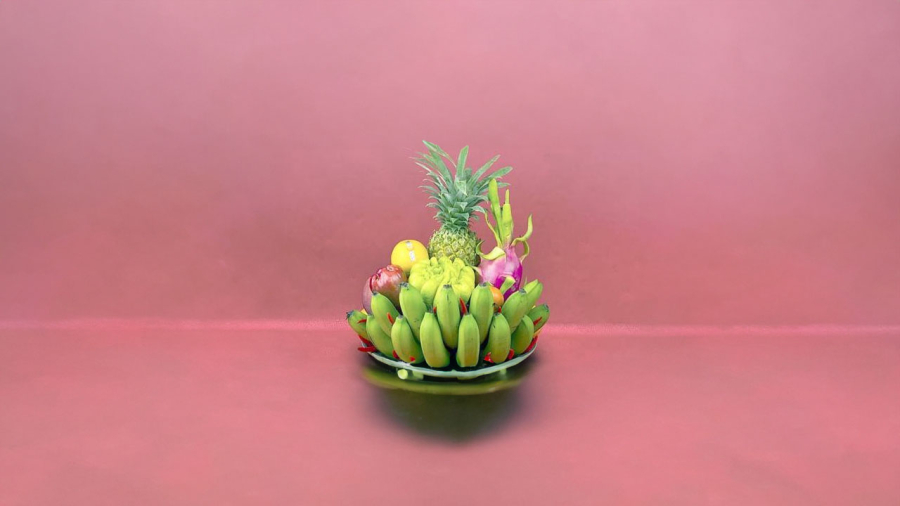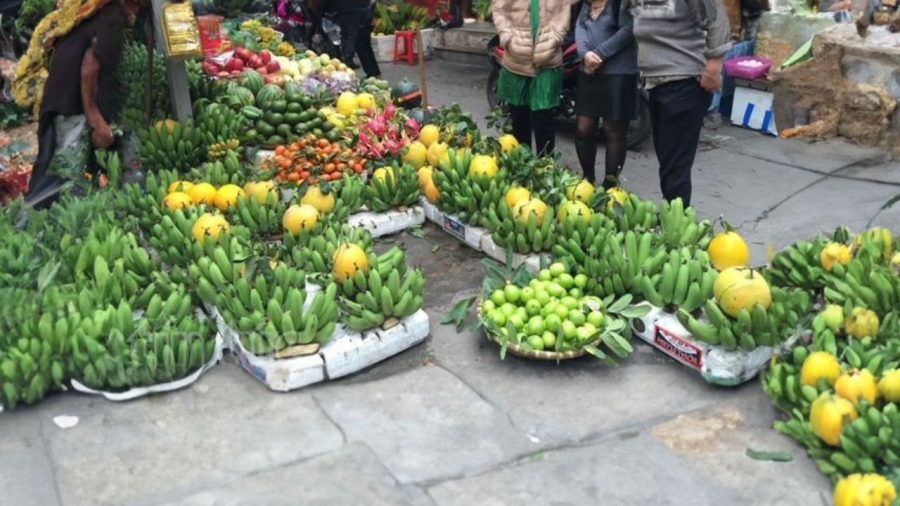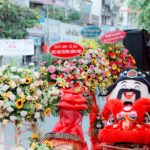Banana offerings placed on the ancestral altar are an indispensable offering on important occasions, especially during Tet celebrations. The banana offering must be green, with unripe or ripe fruits, shiny green peel without scratches, large bunches, long and curved fruits to embrace other fruits such as pomelo, orange, coconut… to create a beautiful five-fruit tray.
However, if you only see green bananas, large and beautiful curved fruits, it may not be the correct feng shui for ancestral worship. That’s why there is a story of a bride going to the market to buy bananas that everyone finds beautiful because they are all equally large and curved, with shiny green peels, but the mother-in-law is meticulous and adheres to traditional customs, so she has to count each fruit. And sometimes many people see it as beautiful, but it doesn’t meet the standards for the following reasons:

The number of fruits on the banana bunch is even
Even though the banana bunch has a beautiful shape, large and curved fruits, if the number of fruits on the banana bunch is even, such as 12, 14, 16…, for careful people, that banana bunch still doesn’t have luck. In Vietnamese ancestral worship, bananas and offerings are arranged in odd numbers, not even numbers. For example, bananas must have an odd number of fruits such as 15, 17, 19 fruits, a plate of mangoes must have 5, not 4, 6, 8, the number of flower branches must be 3, 5, 9, not 2, 4, 6, and incense must be 1, 3, 5, not 2, 4, 6.
Therefore, even though the banana bunch guarantees the shape, size, and color, if the number of fruits on a bunch is even, many people still won’t choose it.
In feng shui, odd numbers are positive and represent yang energy, development, and prosperity. Even numbers are negative and symbolize yin energy. When placing bananas for ancestral worship, people pray for blessings and good fortune for the family, and prosperous business.
The banana bunch on the ceremonial tray represents protected fortune, luck, and abundance. That’s why many meticulous people will choose a banana bunch with an odd number of fruits, not an even number.

Beautiful fruits but the stalks of the fruits have fallen off
When buying betel leaves or ceremonial bananas, Vietnamese people pay attention to whether the banana bunch still has stalks on the top of the fruit. Because that shows the intact fortune, without any breaks, and also aesthetically pleasing. That’s why many careful people will choose a banana bunch with stalks on the fruits. Stalks on the fruits indicate flourishing and developing fortune, symbolizing luck and convenience. Therefore, banana bunches with fallen stalks will be criticized.
And that’s why choosing ceremonial bananas, especially during Tet, is extremely difficult.

The ceremonial banana bunch should not be curved or twisted
Because bananas symbolize fortune, when choosing ceremonial bananas, they must be balanced, harmonious between the fruits, avoid being curved or twisted, straight in one direction, which is bad luck. Moreover, when placing a curved banana bunch on the ceremonial tray, it will be prone to collapse, lose aesthetics, and when stacking other fruits on it, they will easily fall off, causing bad luck.
The banana bunch must also be balanced and suitable with other fruits such as pomelo, orange on the ceremonial tray.
Not all bananas can be chosen for worship
For people in the northern region, the ceremonial banana must be the slender banana variety (also known as short banana) because of its large, curved and easy-to-arrange characteristics. Western bananas, which have short fruits, are not used on the ancestral altar because they are considered ugly and lack fortune.
Meanwhile, with people in Hue, the slender banana is not chosen for worship, but the ngu bananas, leaf bananas, honey bananas, which have short but beautiful and delicious fruits, with beautiful meanings in their names.
On the other hand, people in the South do not worship bananas because they see the word “banana” as “difficult” and do not see any luck.
Through the above information, it can be said that ancestral worship is also very diverse. That’s why there are houses with altars and houses without altars, depending on the individual’s perception and experience.
The information is for reference and contemplation purposes only.
2023 Lunar New Year Gift Ideas for Older Family and Friends
As 2021 approaches, families worldwide are gathering to celebrate the special bond between grandparents and their grandchildren. To show their love and admiration, these thoughtfully chosen gifts will bring a smile to the face of the elderly. Here, we have compiled a list of the 13 most meaningful Tet presents that can bring joy to our beloved grandparents.





































